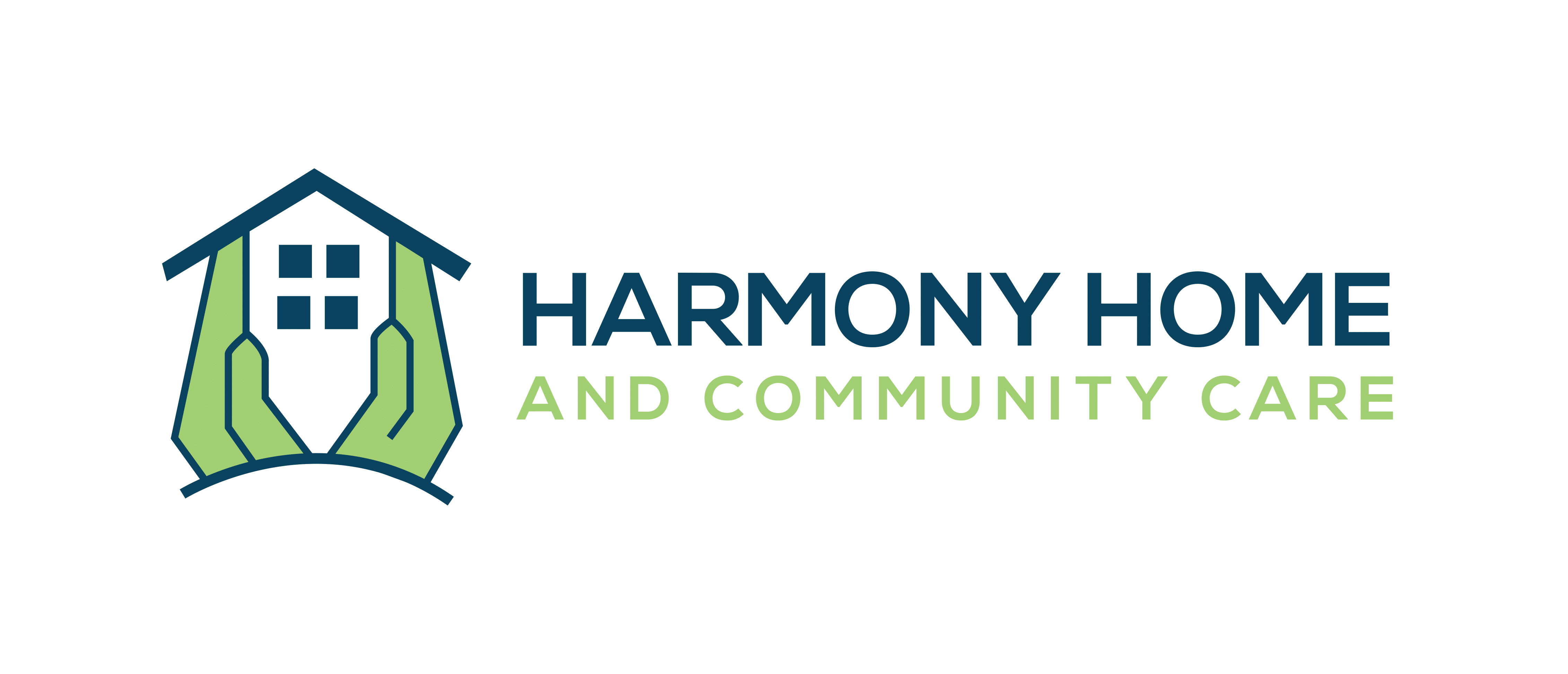Harmony Homes
September 20, 2023
Changes On the NDIS Requirements

Changes On the NDIS Requirements
Are you an NDIS registered buyer looking to understand the latest changes? You aren’t alone. With the news of ever-changing policy regulations, it can be difficult for buyers to keep up with the latest rules and processes. This blog post is designed to provide clarity on recent rule updates related to changes on NDIS requirements and provide guidance on how they might affect your purchase decisions. Whether you’re just starting out or already have multiple years of experience navigating the NDIS system. This article clarifies the rules currently in effect and makes sure you are up to date on any changes before making any purchases.
Find out the latest changes on NDIS requirements and how they may affect you as a registered provider or participant. Get informed with tips from HHACC today.
An Overview of NDIS Changes – Explaining the New NDIS Requirements
The National Disability Insurance Scheme (NDIS) has recently undergone significant changes, affecting both registered NDIS service providers and current NDIS participants. The central aspect of these changes revolves around the updated NDIS registered requirements and the NDIS registration cost for individuals.
Harmony Home and Community Care (HHACC), a registered NDIS service provider, has been closely monitoring these developments to ensure that the needs of their clients continue to be met despite the changes in NDIS registration cost and NDIS requirements.
Changes in NDIS Registration Cost: Significant Updates and Impacts on Participants
Significant Updates and Impacts on Participants
The National Disability Insurance Scheme (NDIS) in Australia recently underwent significant modifications, particularly in the areas of NDIS registration cost and NDIS requirements. These changes will undoubtedly have lasting effects on both NDIS service providers and the people who depend on the scheme.
The Impact of Increased NDIS Registration Costs on NDIS Participants
NDIS registration costs have seen a notable increase, directly affecting both providers and users of the scheme. For some NDIS providers, this price hike might result in decreased profitability. However, it’s worth noting that the goal of these changes is to improve the overall quality and availability of support provided to NDIS participants. Harmony Home and Community Care (HHACC), a reputable NDIS service provider, has adjusted its pricing accordingly to ensure it can continue to offer high-quality care that adheres to the new NDIS requirements.
The updated NDIS requirements have been designed to foster greater support for participants and ensure a more responsive and flexible system for their needs. This change in regulation also calls for more stringent compliance and better monitoring of NDIS providers, ultimately enhancing transparency, accountability, and trust within the system.
Changes On NDIS Registration Requirement
Eligibility Requirements
The National Disability Insurance Scheme (NDIS) is a government-funded program that provides financial assistance to people with permanent and significant disabilities. To be eligible for NDIS registration, applicants must meet NDIS registered requirements regarding their age, disability, and residency status. In recent years, the eligibility requirements have been updated to include more people with disabilities who may not have previously been eligible for NDIS registration.
Increased Documentation Requirements
In addition to increasing eligibility requirements, the NDIS has also increased the documentation requirements for registration. Applicants are now required to provide detailed medical evidence of their disability, as well as evidence of any other support they are receiving or have received in the past. This includes any educational support services, mental health services, physical therapy services, and other relevant services.
Updated Application Process
The NDIS has also updated its application process to make it easier for applicants to apply for registration. The application process is now entirely online and applicants can track the progress of their application at any time via an online portal. Additionally, applicants can receive help with completing their applications from an NDIS representative if needed.
Improved Accessibility Services
The NDIS has also improved accessibility services for NDIS registered participants by providing more information about available support and services on its website and providing access to interpreters and other support staff when needed. This helps ensure that NDIS registered participants have access to all the resources they need to live independently with a disability.
Enhanced Support Coordination Services
Finally, the NDIS has enhanced its support coordination services by providing additional guidance and assistance throughout the entire application process as well as after registration is approved. This includes helping participants find appropriate providers for support such as housing assistance, transportation assistance, employment assistance, and more. Support coordinators also provide ongoing advice and guidance regarding how best to use NDIS funding so that participants can get the most out of their plans.
KEY NDIS Registered Requirements
The NDIS registered requirements have been updated to ensure a higher level of quality and safety for participants. Service providers will now have to meticulously comply with these revised measures, including the likes of Harmony Home and Community Care (HHACC), an established NDIS registered provider.
The new NDIS registered requirements comprise stricter background checks, increased training and support for staff, mandatory reporting of incidents and accidents, and robust risk management systems. These measures aim to safeguard the interests of those with disabilities who rely on the NDIS for support.
Quality and Safety Audits
NDIS registered requirements have now increased the quality of service providers.
Service providers now face more rigorous quality and safety audits to ensure compliance with higher standards. This change guarantees that participants receive services that meet the highest quality benchmarks.
Provider Payment Reforms
Provider Payment Reforms have now been enhanced as a result of changes in NDIS-registered requirements. To streamline payment processes, changes have been made to provider payments, ensuring timely and accurate compensation for services rendered. This reform benefits both participants and service providers, reducing administrative burdens.
Better Support Coordination, collaboration and Communication
NDIS registered requirements have recently been enhanced to better support coordination, collaboration, and communication.
Changes in support coordination focus on enhanced collaboration and communication among participants, support coordinators and service providers. This method guarantees that everyone is on the same page, which results in smoother service delivery.
How Participants Benefit from These Changes
To understand the potential benefits that participants might experience through these changes, it’s crucial to understand the specific differences between the old and new NDIS requirements:
Increased Quality Assurance: Under the revised NDIS registration requirements, service providers must adhere to more stringent quality and safety guidelines. This shift will help you feel more confident that your chosen provider can consistently deliver high-quality services.
Streamlined Processes: The updated NDIS requirements has become more efficient, allowing service providers to register quickly and decrease wait times for participant services.
Enhanced Risk Framework: The new NDIS requirements involve a stronger risk-based framework that ensures service providers are held to higher standards, ultimately benefiting participants who depend on these services.
Greater Emphasis on Participant Outcomes: The updated NDIS requirements have placed a stronger focus on the experiences and results of participants in the system. Service providers are now more accountable for providing services that meet specific outcomes.
Improved Provider Monitoring: With the changes to NDIS registration requirements, the government will increase its capacity to monitor and intervene when necessary to ensure registered providers comply with regulations, ultimately maintaining a safe, trustworthy environment for NDIS participants.
As these revised NDIS registration requirements come into effect, it’s expected that NDIS participants will see the positive outcomes, resulting in better quality care that is more tailored to their individual needs
Impact on Participants and Providers
It’s essential to acknowledge that these changes come with a cost. The NDIS registration costs for providers will most likely rise due to the obligation of adhering to the updated requirements. The NDIS registration requirements, in their new form, strive to offer better services, but providers must factor in these increased expenses as they adapt.
Despite facing potential financial challenges, NDIS providers like HHACC will remain committed to extending remarkable support to their participants. By ensuring compliance with the NDIS registration requirements, providers will be able to maintain their high-quality service offerings, which will bolster confidence in the NDIS as a whole.
Reasons Behind the Changes, and Their Benefits
The updated NDIS requirements are a response to various concerns raised over the years regarding the quality and safety of services offered by some providers. To strengthen the integrity and credibility of the NDIS, these changes were implemented to prevent abuse, neglect, and exploitation of disabled participants.
“The new NDIS registration requirements signify our commitment to safeguarding the rights and well-being of people with disabilities who depend on the NDIS,” said a spokesperson from the National Disability Insurance Agency (NDIA).
The participants will, in turn, receive several benefits from these changes:
- Enhanced quality of services through more stringent standards.
- A safer and more supportive environment is upheld by providers.
- Greater confidence in the NDIS for participants and their families.
The story of Ella, a young woman with Down Syndrome, serves as a testimony to these benefits. Under the guidance of HHACC, Ella now enjoys increased independence and social engagement, thanks to the more rigorous NDIS registration requirements. Her family, too, expresses immense gratitude for the improved services and support provided by HHACC.
Perspectives from Officials
The NDIS Commission’s Regional Director for New South Wales, Helen Williams, has spoken on the reasoning behind the changes. In a statement, she explained, “These updates aim to establish a measure of trust between NDIS participants and providers, fostering a stronger sense of confidence in the services provided.”
Other NDIS officials have echoed Williams’ sentiment, emphasizing that the primary focus is to ensure quality service provision and protection for the disabled community.
Preparing for the Changes as an NDIS Provider or Buyer
Existing and prospective NDIS providers must now acquaint themselves with the revised requirements and procedures, ensuring they meet every condition outlined in the NDIS registration process. Harmony Home and Community Care encourages other providers to see the updates as an opportunity to enhance the quality and efficacy of their services and adapt to the new standards.
Meanwhile, participants receiving support through the NDIS should remain informed about the scheme’s ongoing improvements and revisions. The updated NDIS requirements and increased registration costs aim to deliver a more comprehensive and satisfactory experience for all stakeholders in the system.
In conclusion, the recent changes to the National Disability Insurance Scheme’s registration requirements and associated costs signify a significant step toward guaranteeing the quality, safety, and choice options available for people with disabilities in Australia. Future developments will closely follow this trajectory to ensure ongoing improvements and lasting positive impacts on the lives of NDIS participants.


